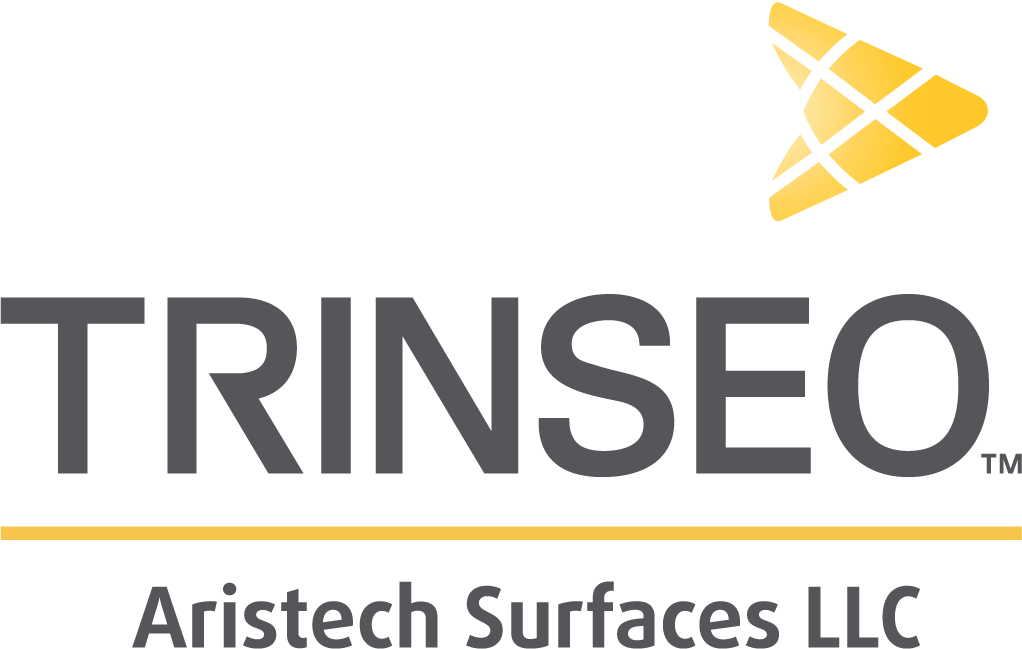Solid Surface
Acrylic Solid Surface countertops are non-porous and easy to clean! They are also repairable, with nearly invisible seams for a seamless look. Available in a wide range of colors and designs, they offer versatile style options to suit any space.
Solid Surface Countertop FAQs
What Is Solid Surface Made Of?
- Engineered Composition: A homogeneous blend of up to 70% alumina trihydrate (ATH) filler (derived from bauxite) and 30% acrylic or polyester resin, plus colorants and pigments.
- Manufacturing Process: The mixture is cast into sheets under heat and pressure, then cured to form a dense, non-porous slab. No natural stone is involved—every slab is uniform from edge to edge.
- Thermoforming Capability: Because it’s thermoplastic, solid surface can be heated and formed into curves, integrated sinks, and seamless backsplashes right on site.
What Should Customers Expect From Solid Surface?
- Seamless, Monolithic Look: Virtually invisible seams and fully integrated sinks or drips—ideal for a clean, contemporary aesthetic.
- Non-Porous & Hygienic: Naturally resists mold, mildew, and bacterial growth—no sealing or after-market coatings required.
- Design Consistency: Uniform color and pattern throughout the thickness; excellent for matching across large expanses or multiple slabs.
- Scratch Resistance: Fairly scratch-resistant, but cuts and gouges can occur under heavy impact or sharp tools.
- Heat Sensitivity: Withstands everyday use, but direct contact with hot pans (above ~150 °C/300 °F) can cause scorch marks or slight warping—always use trivets.
- Lifespan: With proper care, solid surface countertops can last 15–20 years; surface dulling or minor damage is often fully repairable.
How Do You Care For And Maintain Solid Surface?
- Daily Cleaning: Wipe with a soft cloth or non-abrasive sponge and a mild, pH-neutral cleaner or dish soap. Rinse and dry thoroughly to avoid water spots.
- Scratch & Gouge Repair:
- Light Scratches: Buff out using a fine-grade non-woven abrasive pad in a circular motion.
- Deeper Gouges: Professional refinish kits or an installer can sand and polish the damaged area back to factory finish.
- Heat & Impact Protection: Always use trivets or heat pads for hot cookware and cutting boards for food prep—this preserves both finish and structure.
- Avoid Harsh Chemicals: Stay away from oven-type cleaners, bleach, and strong solvents (e.g., acetone)—they can dull or weaken the resin bond.






